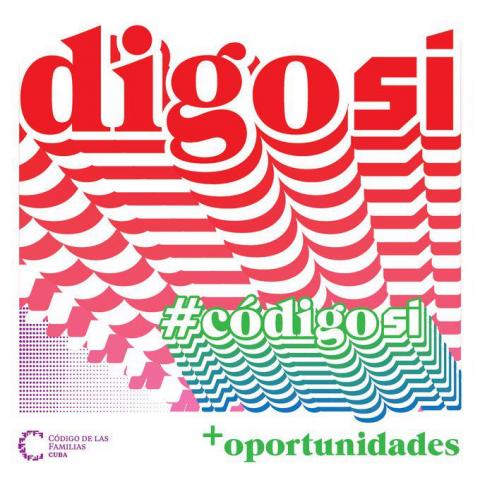
The Cuban constituent, when evaluating the results of the Popular Consultation of the draft Constitution, was faced with the crossroads of including in that text that the future approval of the Code would be through an ordinary legislative procedure or, instead, also establish its contents and consensus through a mechanism of direct democratic participation.
As is known, it was decided in its own and singular way, to build the future Code through the work of the legislators and the contribution of the people in two important phases, closely linked, the Popular Consultation and the Referendum, the latter with binding character.
In this way, it was defined in the Eleventh Transitory Provision of the Magna Carta, by entrusting the National Assembly to develop in Popular Consultation the conformation of the project and then order its final approval in a referendum process.
2. Who can call a legislative referendum and who participates in it?
The Electoral Law of July 13, 2019 defines the National Assembly as the only body empowered to call a legislative referendum and in its article 256 states that in this "citizens with electoral rights, through free, equal, direct and secret voting express if they ratify, approve, modify or repeal a certain legal provision”. The aforementioned Law also grants the supreme body of state power the power to define the rules for this type of referendum.
Similarly, article 218 of Law No. 131 on the Organization and Functioning of the National Assembly of People's Power and the Council of State is pronounced.
3. When will it take place?
The Council of State in its meeting on July 18 and through Agreement No. 391 proposed to the National Assembly to set the date for the referendum in the national territory on Sunday, September 25, 2022, between 7 in the morning and 6 in the afternoon, and a week before developing it abroad, with the definitions that will be established later by the National Electoral Council. This proposal from the Council of State was approved by Parliament in its session this Friday, July 22.
4. Who will have the right to vote?
For this process, the nature of the free, equal, direct and secret vote of the voters is maintained, who have the right to cast a single vote.
They will have the right to vote, as established by the Constitution in electoral processes, all citizens over 16 years of age on the day of the referendum, with the exception of those prevented by the circumstances provided for in the Constitution and the Law.
5. What is the question to be submitted for the voters' consideration?
The question that voters must answer is: Do you agree with the Family Code?
6. How is this Code considered to be finally approved?
The Family Code will be considered finally approved if it receives the majority affirmative vote (YES) of the valid votes cast by the voters. That is, more than 50 percent of the valid votes cast at the polls.
7. Who organizes the referendum process?
It will correspond to the National Electoral Council, in compliance with its constitutional and legal mandate, the organization, direction and supervision of this process in accordance with the Electoral Law.
8. Does the legislative referendum have to be similar to the constitutional referendum?
Until now, Cuba was only aware of consultation and referendum processes in the constitutional sphere. This is how the Constitutions of 1976 and 2019 were approved. In the latter, the Constitutional Referendum was embodied in article 228, as part of the Reform mechanism under certain circumstances, in turn in article 80 subsection d) participation is stated as a right “in elections, plebiscites, referendums, popular consultations and other forms of democratic participation”, without further details.
The current Constitution, nor any other normative provision, establishes the rules for carrying out the legislative referendum, which, moreover, does not have to be exactly similar to the constitutional one. That is why the Assembly is in charge of defining the rules.
Source: Words by Homero Acosta Álvarez, secretary of Parliament and of the Council of State, on the proposal of the Council of State to the National Assembly regarding the referendum on the Family Code

Leave your comment